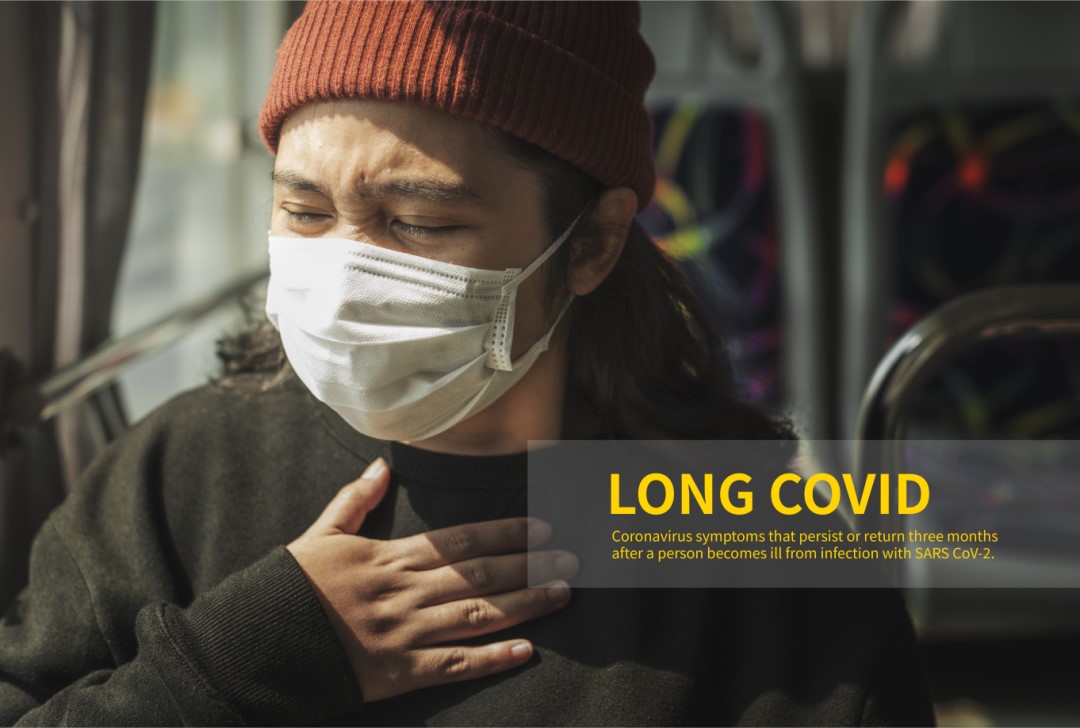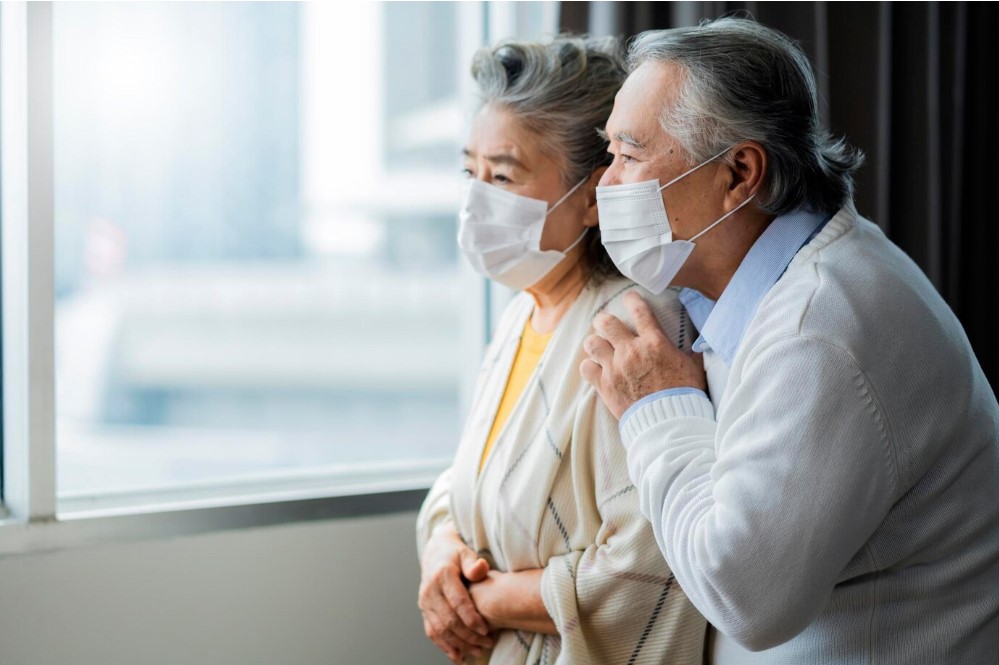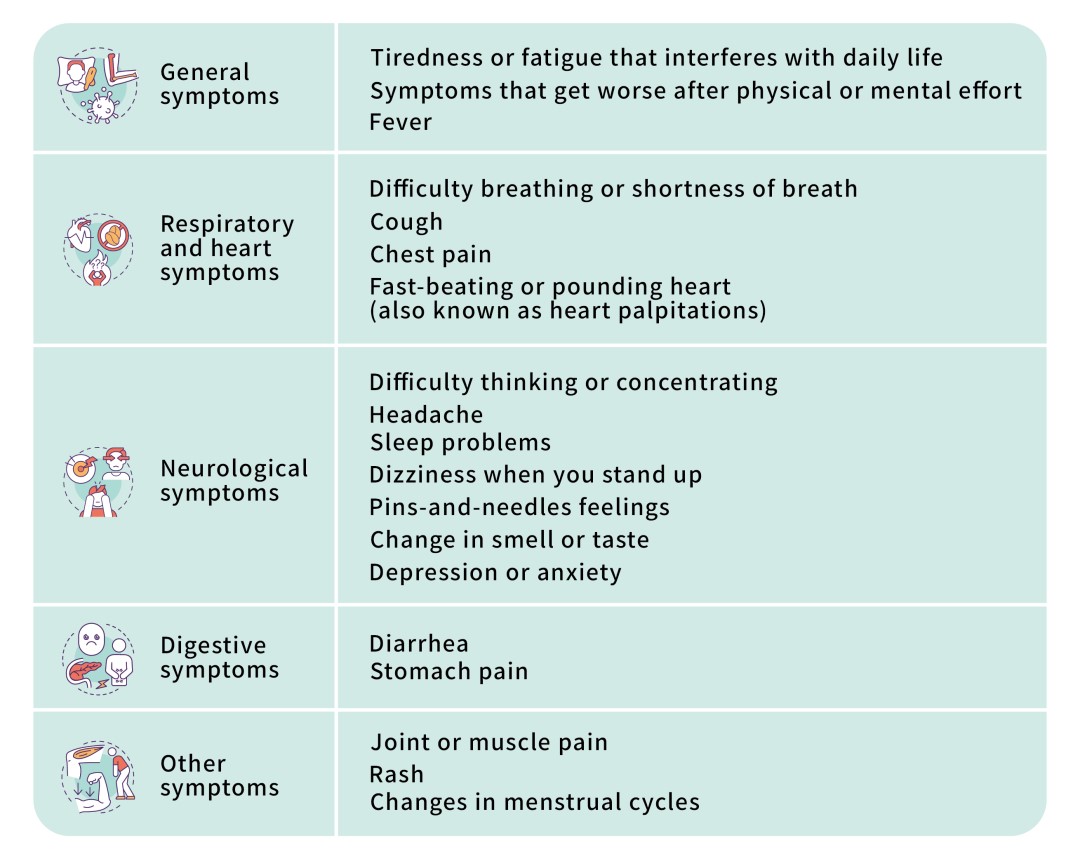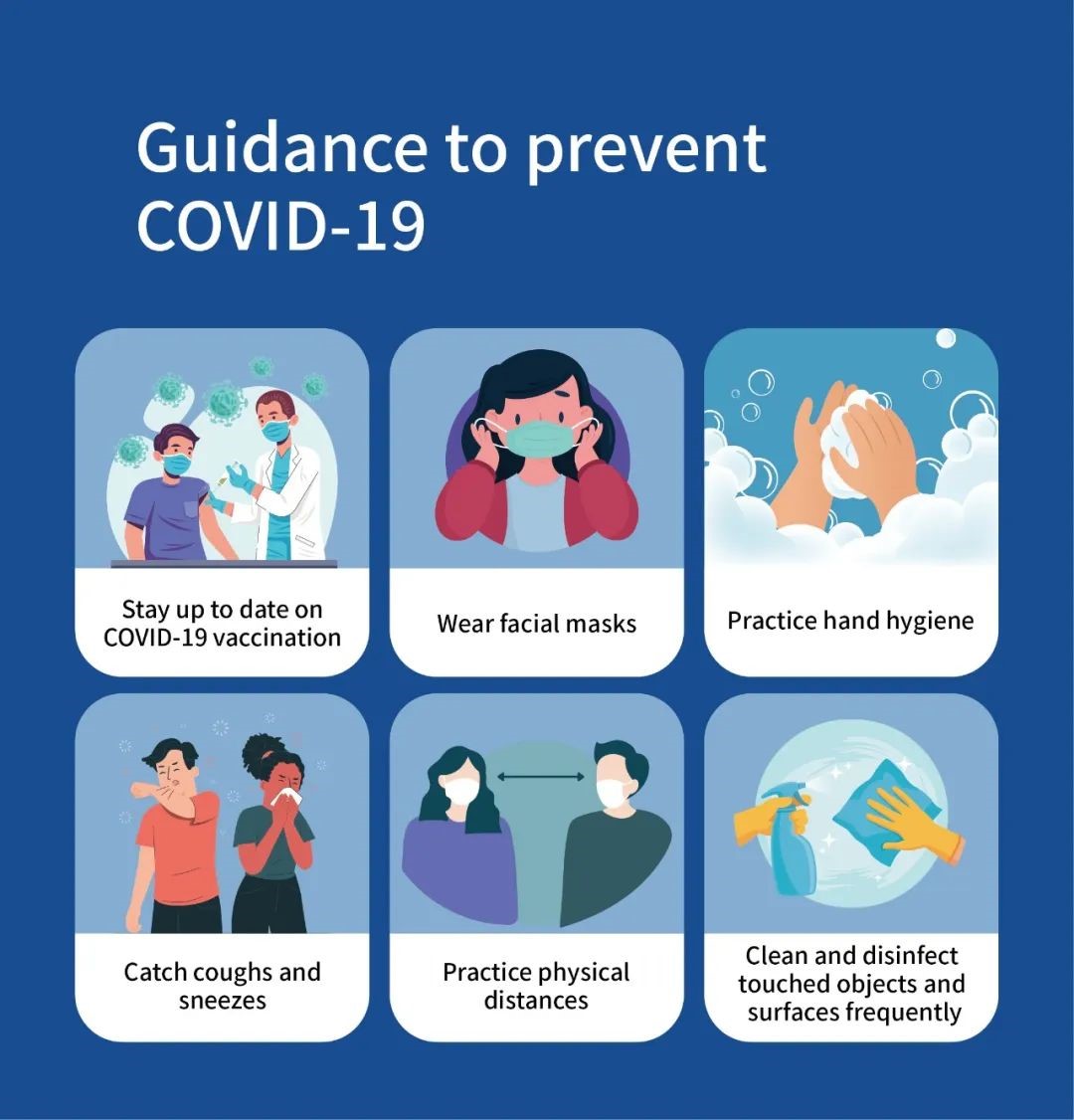February 2023
Mild or moderate COVID-19 lasts about two weeks for most people. But others experience lingering health problems even after the fever and cough go away and they are no longer testing positive for the illness, which is known as post-COVID conditions (PCC) or long COVID.
The World Health Organization has developed a definition for long COVID as coronavirus symptoms that persist or return three months after a person becomes ill from infection with SARS-CoV-2.[2]

Studies show that around 10–20% of people infected by SARS-CoV-2 may go on to develop symptoms that can be diagnosed as long COVID. Although exact numbers of those living with the condition are uncertain, it is believed that more than 17 million people across the WHO European Region may have experienced it during the first two years of the pandemic (2020/21). [2]
1. About Long COVID

Long COVID are a wide range of new, returning, or ongoing health problems that people experience after being infected with SARS-CoV-2. Most people with COVID-19 get better within a few days to a few weeks after infection, so at least four weeks after infection is the start of when long COVID could first be identified. Anyone who was infected can experience long COVID, but some people may be more at risk for developing long COVID. Studies have shown that some groups of people may be affected more by long COVID, including: [1]

2. Symptoms
While common symptoms of long COVID can include fatigue, shortness of breath and cognitive dysfunction, over 200 different symptoms have been reported that can have an impact on everyday functioning.[2] These symptoms that can last weeks, months, or even years after infection. Sometimes the symptoms can even go away or come back again.
People who experience long COVID most commonly report:[1][3]

3. Preventing Long COVID
The best way to prevent long COVID is to protect yourself and others from becoming infected. For people who are eligible, CDC recommends staying up to date on COVID-19 vaccination, along with improving ventilation, getting tested for COVID-19 if needed, and seeking treatment for COVID-19 if eligible.[1] Additional preventative measures include wearing facial masks, practicing hand hygiene, catching coughs and sneezes and ensuring indoor spaces are well ventilated.[2]

【References】
[1] CDC: Long COVID or Post-COVID Conditions.
[2] WHO: Post COVID-19 condition (Long COVID).
[3] National Institutes of Health: COVID-19 Research.

Open WeChat and Scan the QR Code. Stay Tuned with Us.